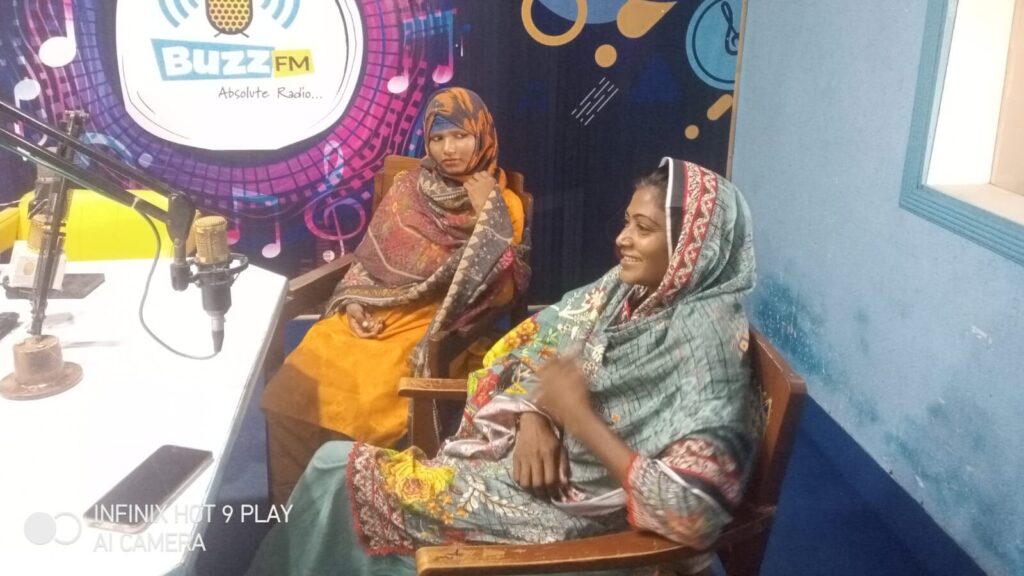
Opening doors in Sargodha
Transitioning from sewing classes to live radio may seem like an odd route for a project to take. But this is what several woman and girls are doing in the Roshan Ghar project, creating new opportunities and opening new doors for themselves and for rural listeners near Sargodha.
In 2022, Amplifying Voices Pakistan helped a local pastor and his wife to start sewing classes in a rural village to help women to build skills for earning. These Roshan Ghar classes also became a place for talking about problems many of the women had in common – especially issues affecting the health and wellbeing of families. Some of those conversations led to health camps and a mobile health clinic to take conversations into people’s home. Other conversations were recorded, as were interviews with health professionals, and then put together into conversational education programmes. Women would listen to the programmes on speakerboxes during the sewing classes.
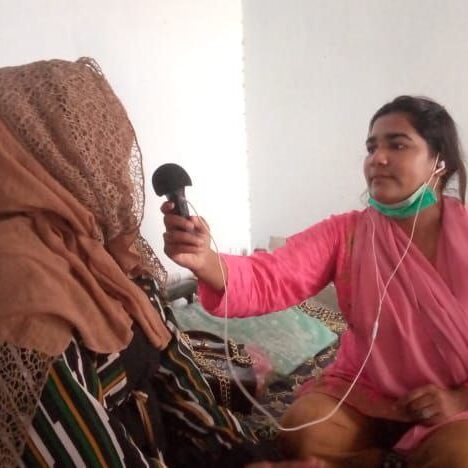
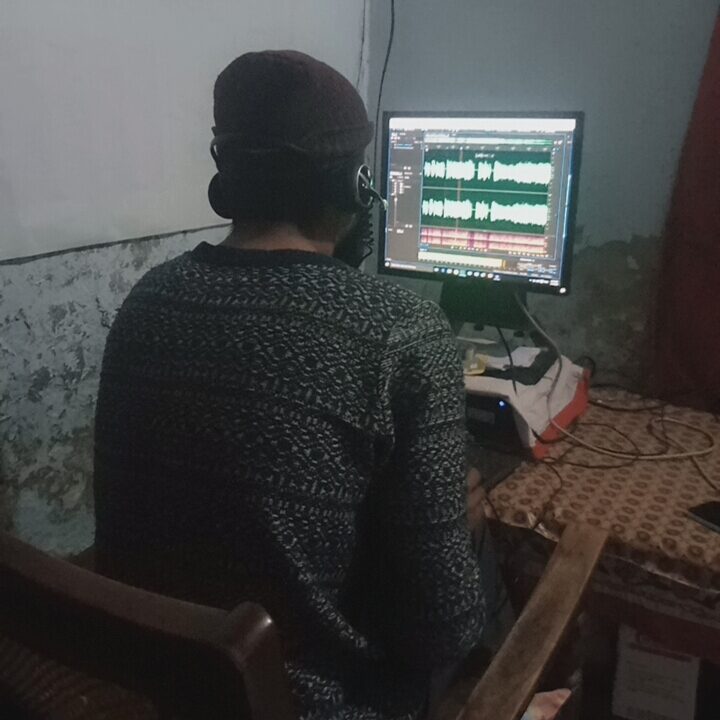
Hazeen Latif and his team from Amplifying Voices Pakistan supported the group by teaching interview skills, recording skills, and editing skills. As the quality got better and better, Hazeen introduced Roshan Ghar’s programmes to a local radio station. These weekly 10-minute slots became popular and the station invited the group leaders to join them for a live show on International Women’s Day in March this year. The sewing teacher went along with Rimshah, the health worker. They were a little nervous about being live on air, so Hazeen joined them.
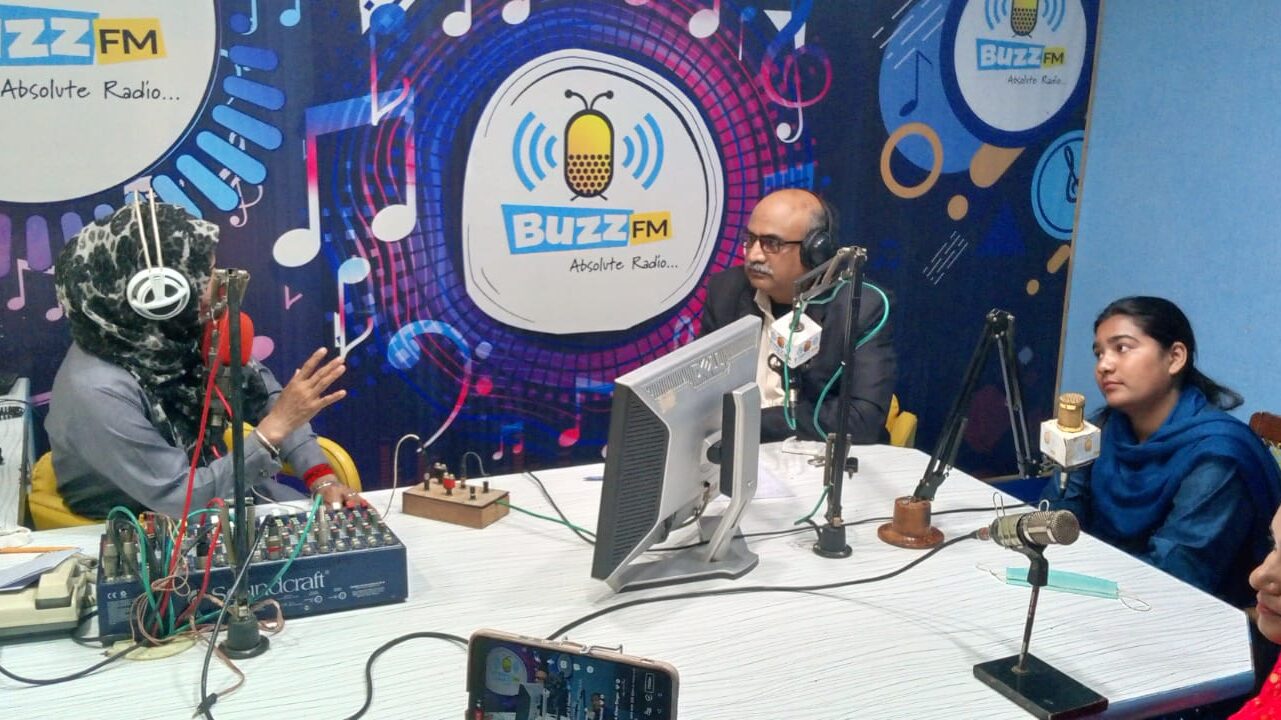
The live show received lots calls from listeners who were excited to hear women from villages like their own in the studio alongside the professionals. The Roshan Ghar women were creating an atmosphere of possibility.
The radio station called them back for another live show in June. This time focussing on the Roshan Ghar project and the partnership with Amplifying Voices. The local station started to invite the Roshan Ghar team for monthly live shows.
A show in August focussed on neurological conditions. The mobile health clinic had found several families with children suffering from epilepsy but who did not understand what was happening to their children. Two of these women came and spoke on the show. One lady shared about her son being excluded from school because he had fits. They also shared about the advice and treatment they had received from the lady health worker and volunteer doctors visiting the village.
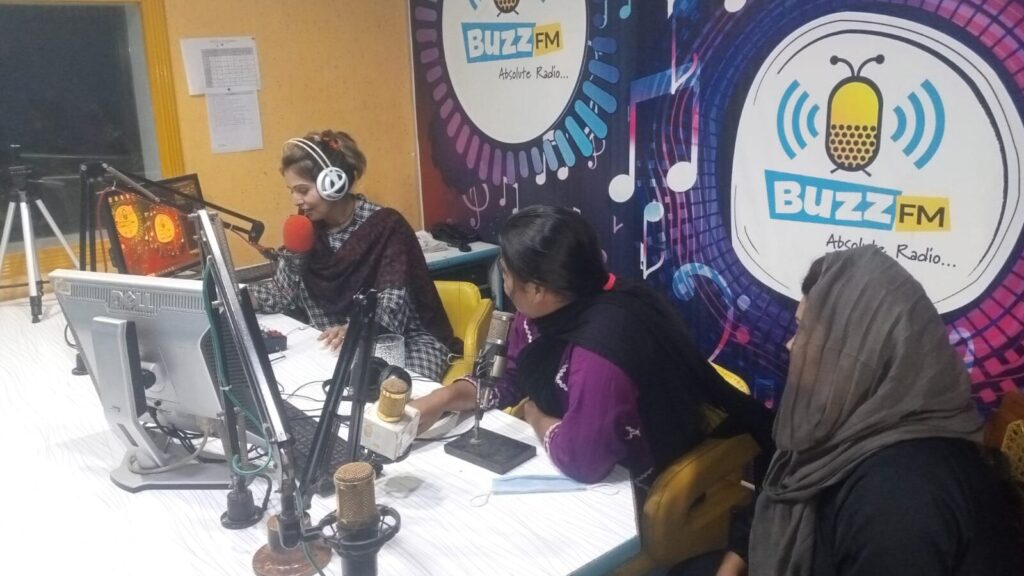
The women spoke with Hazeen later saying:
“before we felt ashamed [of our children’s conditions], but now we can talk about taking care of our children.”
… not just in the sewing class but live on air.
More women from the village are now taking part in monthly live shows accompanied by local project leaders, but no longer needing to have Hazeen or anyone from the Amplifying Voices Pakistan team with them.
“Before we could not talk to other men or people outside our village, but now we get such a confidence that we can talk to anyone.”
Listeners also feel like the Roshan Ghar women are opening new doors for them:
“You talk about things that are taboo – like skin rashes in private areas, and intestinal worms – we learned a lot from you.”
“Especially about toilets – the importance of keeping toilets clean. Most radio programmes are about glamourous topics and don’t touch on things like this.”
Yet, these are topics that make a difference in rural communities. In recent years there have been several projects or campaigns to provide latrines for village homes, but often without a corresponding rollout of advice on care or maintenance. As a result, toilets had become unhygienic and a source of illness. These women, who are not afraid to talk about the unpleasant, are helping people stay healthier.
The programmes continue. Often drawing out the wisdom within the villages as well as accessing the medical experts.
“Next we want to hear about smog and lung diseases, and especially about home remedies for building resistance to the effects of smog.”
